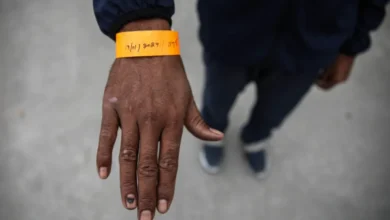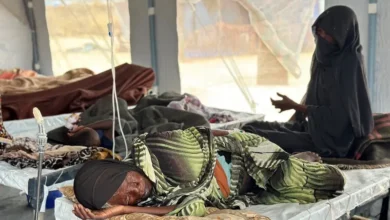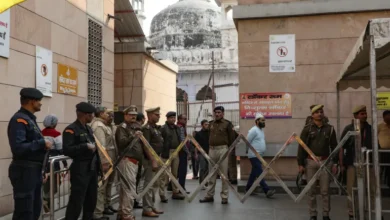Will Yunus-led interim government bring Bangladesh out of its ‘dark era’?

Maliha Namlah says she had been holding her breath since Monday when student-led protests in Bangladesh forced longtime Prime Minister Sheikh Hasina to resign and flee the country after weeks of deadly unrest in which more than 300 people were killed.
Namlah, 19, was one of the coordinators of the student movement at Jahangirnagar University on the outskirts of the capital, Dhaka. As soon as Hasina’s government fell, her only worry was whether it would be replaced with another military rule in a country that has seen several coups since its independence from Pakistan in 1971.
But the current army chief, General Waker-uz-Zaman, has been hailed for taking charge of a country in turmoil and announcing the formation of an interim government as soon as Hasina fled.
“We didn’t fight and shed blood for a military government. We wanted a civilian government that will bring genuine reforms,” Namlah told Al Jazeera on Friday.
“And we are relieved to see that that happened quickly.”
Three days after Hasina quit, Muhammad Yunus, the South Asian country’s only Nobel laureate, was sworn in on Thursday night as the “chief adviser” of a caretaker government tasked to bring peace and democracy, both of which Hasina’s critics said were undermined during her 15 years of “autocratic” rule.
The chief adviser of the caretaker government holds the rank of the prime minister while members of the advisory council are granted the status of ministers.“The army chief had promised an interim government, but until it was officially established, uncertainty remained due to widespread speculation,” Saifullah Sajib, an employee at a travel agency in Dhaka, told Al Jazeera as he watched a live telecast of Yunus and his 16-member cabinet take their oaths at the presidential palace.
Why was Yunus picked?
The protests in Bangladesh that began last month were led mainly by tens of thousands of university students opposed to a quota system for government jobs that they alleged favoured those close to Hasina’s Awami League party.
The primarily peaceful demonstrators were attacked by both the security forces as well as supporters of Hasina’s party, resulting in nearly 300 deaths and transforming the protests into a larger call for Hasina to quit.
Hours after she resigned and fled to neighbouring India in a military aircraft, the Students Against Discrimination, an umbrella group of student movements that led the protests, proposed 84-year-old Yunus as the head of an interim government.
Yunus, an economist and banker, was awarded the Nobel Peace Prize in 2006 for his efforts to bring millions of people out of poverty through microloans. He is also a longtime critic of Hasina and hailed the success of the student-led protests as a “second independence day” for Bangladesh.
“I feel so relieved to see Dr Yunus sworn in as the head of the interim government,” Abdullah Al Mamun, a businessman in the garments industry, told Al Jazeera. “I hope that someone with his credentials will be able to guide the country through this crisis.”
‘Freedom to every home’
After his swearing-in on Thursday, Yunus told reporters as he was flanked by student leaders: “Bangladesh is a family. We have to unite it. It has immense possibility.”
He said his government’s “foremost promise is to ensure that everyone can enjoy the fresh air of freedom”.
Acknowledging the disorder, Asif Nazrul, professor of law at Dhaka University and member of Yunus’s interim government tasked with running the Ministry of Law and Justice, said it is grappling with multiple challenges due to the unprecedented situation in the country.
“Under [Hasina’s] autocratic rule, it was a dark era, and the people’s profound anger against the regime led to this eruption. However, we can no longer support such outbursts as they have exceeded acceptable limits,” he said.
Who else is in the government?
The interim government is a mix of both experience and youth and includes rights activists, professors, lawyers, former government officials and other prominent members of Bangladesh’s civil society.
But it is the surprise inclusion of two 26-year-old student leaders who spearheaded the recent movement against Hasina that is likely to be a talking point in the coming days.
Nahid Islam, a student of sociology at Dhaka University, has been given the telecommunications portfolio while Asif Mahmud, a student of linguistics at the same university, will look after sports.










